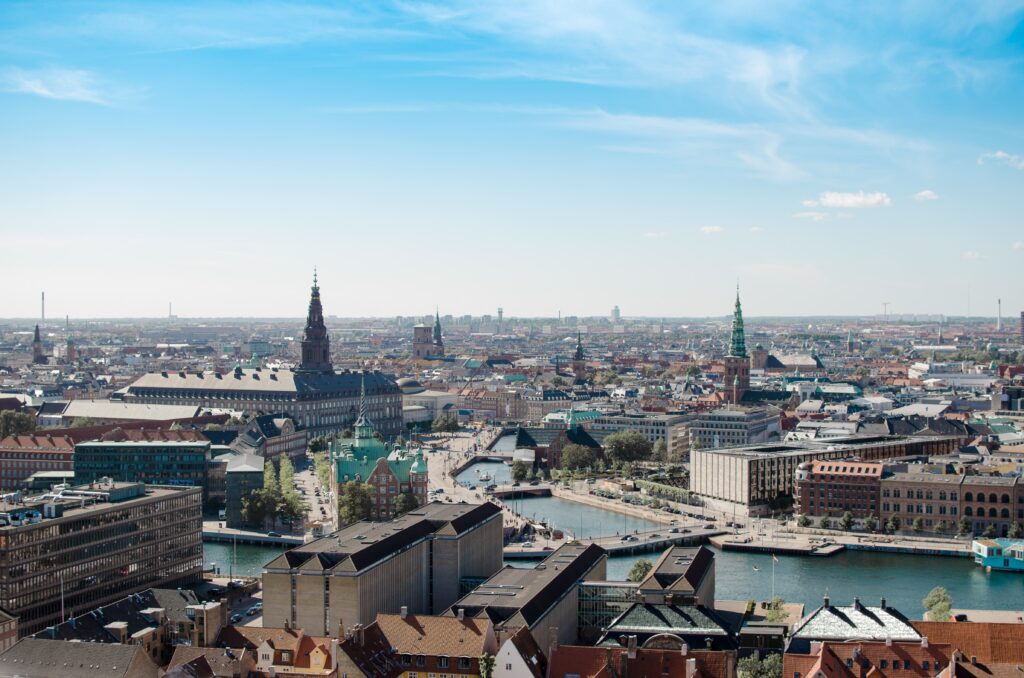Thinking about moving to Denmark? You’re not alone. Every year, thousands of expats are drawn to this Scandinavian gem for its high quality of life, strong social systems, and famously balanced approach to work and life. Whether you’re relocating for a new job, better healthcare, or simply a lifestyle upgrade, living in Denmark offers a unique blend of modern convenience, cultural richness, and community-minded values.
But moving to a new country is never simple. From understanding the cost of living in Denmark to navigating its healthcare system, adapting to the Danish work culture, and learning what daily life is really like, there’s a lot to prepare for. This guide offers a complete overview for expats who want to thrive, not just survive, in Denmark.
Why Denmark appeals to expats
Denmark consistently ranks among the top countries for expats due to its outstanding quality of life, high safety standards, and efficient public services. The country’s capital, Copenhagen, is especially popular among expats for its cosmopolitan atmosphere, cultural diversity, and modern infrastructure. Many expats who move to Denmark are attracted by its progressive values, clean environment, and strong emphasis on work-life balance.
As part of Scandinavia, Denmark offers a high standard of living and a wide range of opportunities for professionals, students, and families. Whether you’re relocating for work, education, or personal reasons, living in Denmark as an expat can be a deeply rewarding experience. However, it does come with certain challenges, especially when it comes to cost of living and integration into Danish society.
Cost of living in Denmark: what to expect
One of the first things expats notice is the high cost of living in Denmark. Everything from rent and groceries to dining out and entertainment is more expensive than in many other European countries. Cities like Copenhagen and Aarhus are particularly costly, and newcomers should be financially prepared before moving to Denmark.
- A single person’s monthly expenses (excluding rent) can range between 8,000 and 10,000 DKK (around 1,200 to 1,500 USD)
- A family of four may require upwards of 40,000 DKK per month, depending on lifestyle and location
- Rent for a one-bedroom apartment in Copenhagen can easily exceed 10,000 DKK
Despite these high costs, the quality of life in Denmark is considered exceptional. In return for the high tax rate, residents enjoy excellent public services, including free education, a strong public healthcare system, and efficient public transportation. In fact, many expats find they don’t need a car at all, thanks to the country’s bike-friendly cities and reliable trains and buses.

While budgeting is crucial, it’s important to remember that Denmark also offers high salaries and a well-regulated job market, which can offset some of the costs for skilled professionals.
Work and life in Denmark: a unique balance

One of the major reasons expats choose Denmark is its work-life balance. The Danish work culture values efficiency, flexibility, and employee well-being. A standard workweek is 37 hours, and overtime is uncommon. Employees are encouraged to take breaks, enjoy their personal lives, and maintain a healthy balance between work and family time.
The concept of “flexicurity” is a combination of labor market flexibility and social security, and it defines much of Danish employment policy. Companies can hire and lay off workers with relative ease, but the state provides generous support through unemployment benefits and retraining programs.
Some key elements of Danish work culture that expats should be aware of:
- Hierarchies are flat and it is common to call your manager by their first name
- Transparency and punctuality are highly valued
- Collaboration and team spirit are essential
- Meetings are focused, and work-life boundaries are respected
Expats in Denmark working in sectors such as IT, engineering, life sciences, and renewable energy often find good career opportunities. However, knowledge of the Danish language can be a decisive factor in job applications, especially in non-specialist roles or public sector employment.
The Danish healthcare system: high quality and universal access
Denmark offers one of the most advanced public healthcare systems in the world, providing universal coverage to all legal residents. Once you’ve registered with your CPR number (Central Person Register), you gain access to public health services, which include visits to general practitioners, specialists, emergency services, and hospital care.
The Danish health system is funded through taxes, meaning healthcare is free at the point of use. However, dental care for adults and some prescription medications may require co-payment.
Health insurance in Denmark
- Public health insurance covers most medical needs
- Some expats opt for private health insurance for faster access to specialists or coverage while traveling abroad
- Private insurance may also be part of employee benefit packages for international hires
The healthcare system in Denmark is widely praised for its efficiency, high standards, and equal access, making it an important factor in the country’s appeal to expats.

Visa, residency, and moving to Denmark
Whether you need a visa or not depends on your nationality:
- EU/EEA and Swiss citizens can live and work in Denmark without a visa but must register with the local authorities and apply for an EU residence document within three months of arrival
- Non-EU nationals will need to apply for a residence and work permit before arriving. These permits are typically linked to employment, study, or family reunification
To move to Denmark legally, expats should:
- Find suitable accommodation
- Secure a job contract or university admission letter
- Submit visa applications through the Danish Agency for International Recruitment and Integration (SIRI)
After approval, you will receive a CPR number, which allows you to open a bank account, receive health care, and register your address. While moving to Denmark requires some paperwork, the country offers a relatively streamlined process for skilled expats.
Life in Denmark: culture and social integration
Denmark’s culture is shaped by its history, strong sense of community, and the famous concept of “hygge”. This word describes the feeling of coziness, contentment, and well-being. From warm lighting and home dinners to social gatherings with close friends, hygge plays a central role in Danish life. For many expats, social integration can be one of the biggest challenges. Danish people are known for being polite, honest, and private. While they may not be as openly social as in some other cultures, once you make a connection, Danish friendships are deep and long-lasting.

If you want to dive deeper into the Danish way of life, check out these fun and interesting facts about Denmark for expats, a great way to get to know the country beyond the basics.
Tips for social integration:
- Join local clubs or interest groups
- Attend expat events or international meetups
- Learn at least basic Danish to participate in conversations and navigate bureaucracy more easily
- Respect local customs, including modesty, punctuality, and environmental awareness
Expats report that life in Denmark improves significantly once they begin to understand and appreciate Danish culture. Participating in local events, understanding traditions, and embracing the slower pace of life outside work are essential for long-term happiness.
Pros and cons of living in Denmark
Advantages
- High quality of life and strong social security system
- Excellent public healthcare and free education
- Emphasis on work-life balance and employee rights
- Safe, clean cities with efficient public transportation
- Family-friendly environment with generous parental leave
Challenges
- High cost of living, especially in cities like Copenhagen
- Weather can be dark, wet, and cold for long periods
- Making local friends may take time due to reserved social norms
- Language barrier in some job sectors and social situations
- Taxation is high, though many benefits are returned in services
Understanding the pros and cons of living in Denmark helps new expats prepare mentally and financially for their move. The key is to approach the transition with realistic expectations and a willingness to adapt.
Final thoughts: Is Denmark the right country for you?
If you’re seeking a country that offers a high standard of living, efficient public services, and a deep respect for personal time and family life, Denmark is an excellent choice. Despite the high cost of living, the work-life balance, healthcare system, and Danish work culture make it one of the most attractive countries for expats.
Living in Denmark is not just about adjusting to a new job or home. It is about embracing a different lifestyle. One that values time, equality, sustainability, and the collective good.
Whether you’re moving to Denmark for career opportunities, family reasons, or simply the chance to experience a more balanced way of life, the country has a great deal to offer. With some preparation and cultural curiosity, your expat life in Denmark can be a fulfilling and transformative journey.
